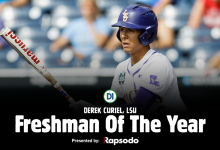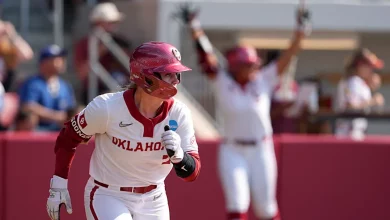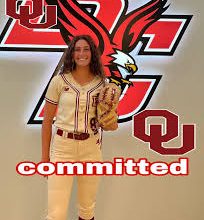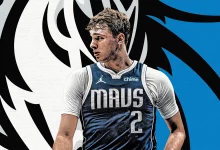Ravens star Lamar Jackson leads six NFL quarterbacks heading toward a potential contract clash, highlighting a significant upcoming negotiation showdown in the league.
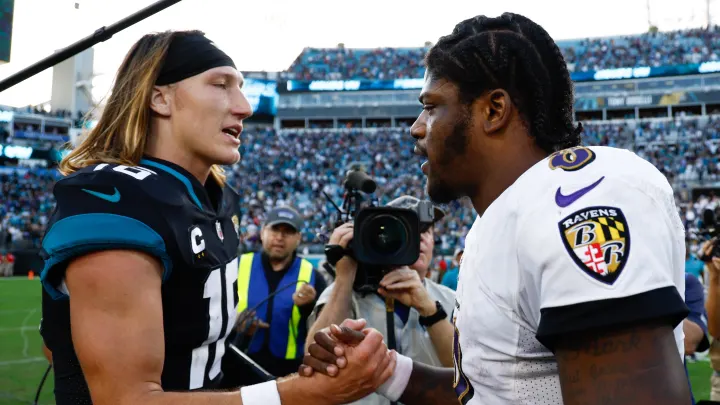
The NFL offseason is often characterized by blockbuster contract negotiations, with star players and teams navigating complex economic, strategic, and personal considerations. In 2025, a notable storyline is emerging: Ravens’ quarterback Lamar Jackson is at the forefront of a league-wide group of six elite quarterbacks, all of whom are approaching critical contract decisions that could reshape their careers, team dynamics, and the NFL’s financial landscape.
This comprehensive analysis explores the context, players involved, market forces, historical parallels, and future implications of this impending “contract collision course,” illustrating why these negotiations are more than just individual deals—they are pivotal moments that could influence NFL contracts for years to come.
The Context: The NFL Quarterback Market in 2025
Quarterbacks are the most scrutinized and highest-paid players in the league. Their contracts often set the tone for franchise valuation, player leverage, and league-wide salary structures. Over the past decade, the NFL has seen a dramatic escalation in quarterback salaries, driven by the importance of the position, increasing TV ratings, and a growing talent pool of elite passers.
However, with rising salaries come escalating expectations, market saturation of high-value contracts, and complex negotiations involving guaranteed money, signing bonuses, incentives, and team control. As of 2025, a handful of quarterbacks are entering pivotal contract years, with many seeking to maximize their value amid a shifting league landscape.
The Core Group: Six Quarterbacks on a Collision Course
The six quarterbacks at the center of this discussion are:
Lamar Jackson (Baltimore Ravens)
Joe Burrow (Cincinnati Bengals)
Justin Herbert (Los Angeles Chargers)
Jalen Hurts (Philadelphia Eagles)
C.J. Stroud (Houston Texans)
Anthony Richardson (Indianapolis Colts)
Each of these players is either in the final year of their rookie deal, negotiating an extension, or approaching free agency, making their upcoming negotiations highly consequential.
Lamar Jackson: The Trailblazer and Leader
Background and Contract History
Lamar Jackson, the Ravens’ dynamic dual-threat quarterback, has been a transformative figure since entering the league in 2018. Known for his electrifying running ability and improved passing, Jackson has established himself as one of the most exciting players in the NFL.
His initial rookie contract, a four-year deal with a fifth-year option, made him one of the highest-paid quarterbacks at the time. However, Jackson’s value has continued to soar, especially after winning the MVP in 2019 and leading the Ravens to playoff success.
Contract Negotiation and Disputes
Jackson’s negotiations with Baltimore have been notably tense. The franchise has historically been cautious in committing large guarantees, and Jackson’s desire for a fully guaranteed contract—akin to Deshaun Watson’s record-breaking deal—has been a sticking point.
As of 2025, Jackson is approaching free agency or a franchise tag scenario, with many analysts believing he could push for a fully guaranteed deal, setting a precedent for future negotiations. His status as a dual-threat superstar makes him a benchmark for the league’s valuation of quarterbacks who excel both in the pocket and on the ground.
Significance of Jackson’s Negotiation
Jackson’s deal will serve as a template or cautionary tale for other quarterbacks seeking maximum guarantees. A successful fully guaranteed contract could elevate the market, while a contentious negotiation or franchise tag could fuel further debates about player rights and team control.
The Other Five Quarterbacks: Emerging and Established Stars
Joe Burrow: The Franchise Builder
Since being drafted first overall in 2020, Joe Burrow has demonstrated exceptional leadership, accuracy, and poise. His performances have elevated the Bengals’ status, culminating in deep playoff runs.
Entering the final year of his rookie deal, Burrow is seeking a lucrative extension that reflects his positional value. Given Cincinnati’s recent success, he’s positioned as a franchise cornerstone, and his negotiations will likely focus on guaranteed money and long-term security.
Justin Herbert: The Statistical Maestro
Since being drafted sixth overall in 2020, Justin Herbert has been a statistical marvel, consistently ranking among the league’s top passers. His arm talent and football IQ have made him a top-tier quarterback.
Herbert’s contract situation is complicated by the Chargers’ salary cap constraints and the desire to build a competitive roster around him. His negotiations could set a precedent for young elite quarterbacks seeking premium deals early in their careers.
Jalen Hurts: The Dual-Threat MVP
Jalen Hurts, who burst onto the scene with a remarkable 2023 season and a Super Bowl appearance, has solidified himself as a top-tier quarterback with his rushing ability and leadership.
In 2025, Hurts is negotiating an extension that rewards his dual-threat skills and leadership impact. His deal could influence the market for quarterbacks who excel in both passing and rushing.
C.J. Stroud: The Rookie on the Verge
C.J. Stroud, the Texans’ first-round pick in 2023, has shown promise but remains on his rookie deal. If he continues his development, he may become a candidate for a rookie extension or a new deal in 2026. His situation underscores the importance of rookie contracts and early negotiations.
Anthony Richardson: The High-Risk, High-Reward Prospect
The Colts’ Anthony Richardson, drafted in 2024, is an athletic marvel with a high ceiling but limited experience. His upcoming negotiations will likely be shaped by his development, injury history, and potential.
The Dynamics of NFL Quarterback Contracts in 2025
Market Trends and Influences
Several factors influence the negotiations:
Guaranteed Money: The debate over fully guaranteed contracts remains central. Jackson’s stance and the league’s response could redefine future deals.
Salary Cap and Team Flexibility: Teams’ cap management and roster-building strategies impact how much they can allocate to top-tier QBs.
Player Performance and Market Value: Consistent elite production increases leverage, but injuries or inconsistencies can temper expectations.
Precedents and Historical Deals: Recent landmark contracts, such as Watson’s deal and Patrick Mahomes’ extension, serve as benchmarks.
The Impact of the Collective Bargaining Agreement (CBA)
The ongoing negotiations and potential league policies under the CBA might influence how teams structure deals, including incentives, guarantees, and contract length. Players like Jackson and Hurts may push for terms that prioritize guaranteed money, while teams seek flexibility.
Why Is This a Collision Course?
The term “collision course” highlights the potential for conflicts—between players and teams, between different players vying for similar contracts, and within the broader league negotiation landscape. Several elements contribute:
Escalating Salaries: As top quarterbacks push for fully guaranteed deals, teams are wary of setting new precedents that could inflate future contracts.
Contract Durations and Guarantees: Players want long-term security, while teams seek flexibility and risk mitigation.
Market Competition: With six elite quarterbacks approaching negotiations simultaneously, competition for the best deals could lead to disputes and bargaining wars.
League-wide Implications: The outcome of these negotiations could influence salary structures, cap management, and future player-team negotiations.
The Broader Implications for the NFL
Setting New Standards
Jackson’s negotiations, along with those of Burrow, Hurts, Herbert, Stroud, and Richardson, could set new standards for quarterback contracts. A fully guaranteed deal for Jackson, for example, might be followed by similar demands from other top players.
Impact on Salary Cap and Roster Building
Teams may adjust their salary cap strategies based on the negotiation outcomes, impacting how they build rosters, acquire talent, and manage financial risk.
Player Power and Leverage
The collective bargaining power of quarterbacks has grown, emphasizing the importance of star players in driving league revenues and negotiations. This dynamic could shift power balances in future negotiations.
Fan and Media Reaction
Media narratives and fan expectations will amplify these negotiations, influencing public perception and potentially pressuring teams and players to reach agreements.
Historical Parallels and Lessons
Looking back at previous landmark contracts provides insights:
Deshaun Watson (2022): The first fully guaranteed $230 million deal, which sparked debate about guarantees and market inflation.
Patrick Mahomes (2020): The half-billion-dollar extension, setting a high watermark for value and guarantees.
Russell Wilson (2019): A record-breaking deal that emphasized guaranteed money and contract length.
These precedents reveal that negotiations often involve strategic compromises, public negotiations, and league-wide repercussions.
Future Outlook: What Happens Next?
Lamar Jackson’s Contract: The Ravens and Jackson will negotiate over guarantees, length, and incentives. A breakthrough could elevate the market, while a standoff might lead to franchise tags or trade speculation.
Other Quarterbacks’ Deals: Burrow, Hurts, and Herbert will aim for deals that reflect their status as league leaders, potentially challenging or reaffirming Jackson’s path.
League-Wide Negotiation Climate: Collective pressures may push for reforms in guaranteed contracts, influencing the next CBA negotiations.
Lamar Jackson’s position at the forefront of a group of six NFL quarterbacks approaching critical contract negotiations underscores a pivotal moment in league history. These negotiations are more than just individual deals—they represent a fundamental debate about player rights, team flexibility, and the economic future of the NFL.
Jackson’s pursuit of a fully guaranteed contract, combined with the rising value of other elite quarterbacks, signals a potential seismic shift in how NFL contracts are negotiated and valued. The collision course set by these six players could lead to groundbreaking agreements, league policy changes, and a new era of quarterback contracts.
As fans, analysts, and league insiders watch these negotiations unfold, one thing is clear: the 2025 NFL contract landscape will be defining for the sport’s financial and competitive future.

